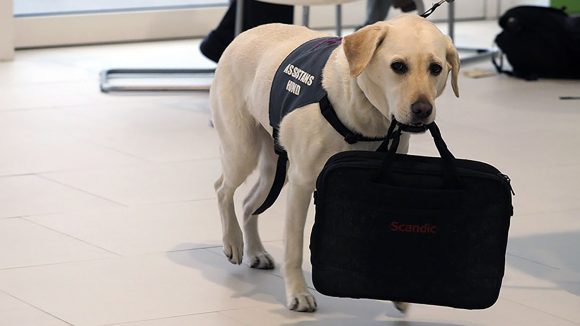A world without barriers: what we learned at the Zero Project Conference
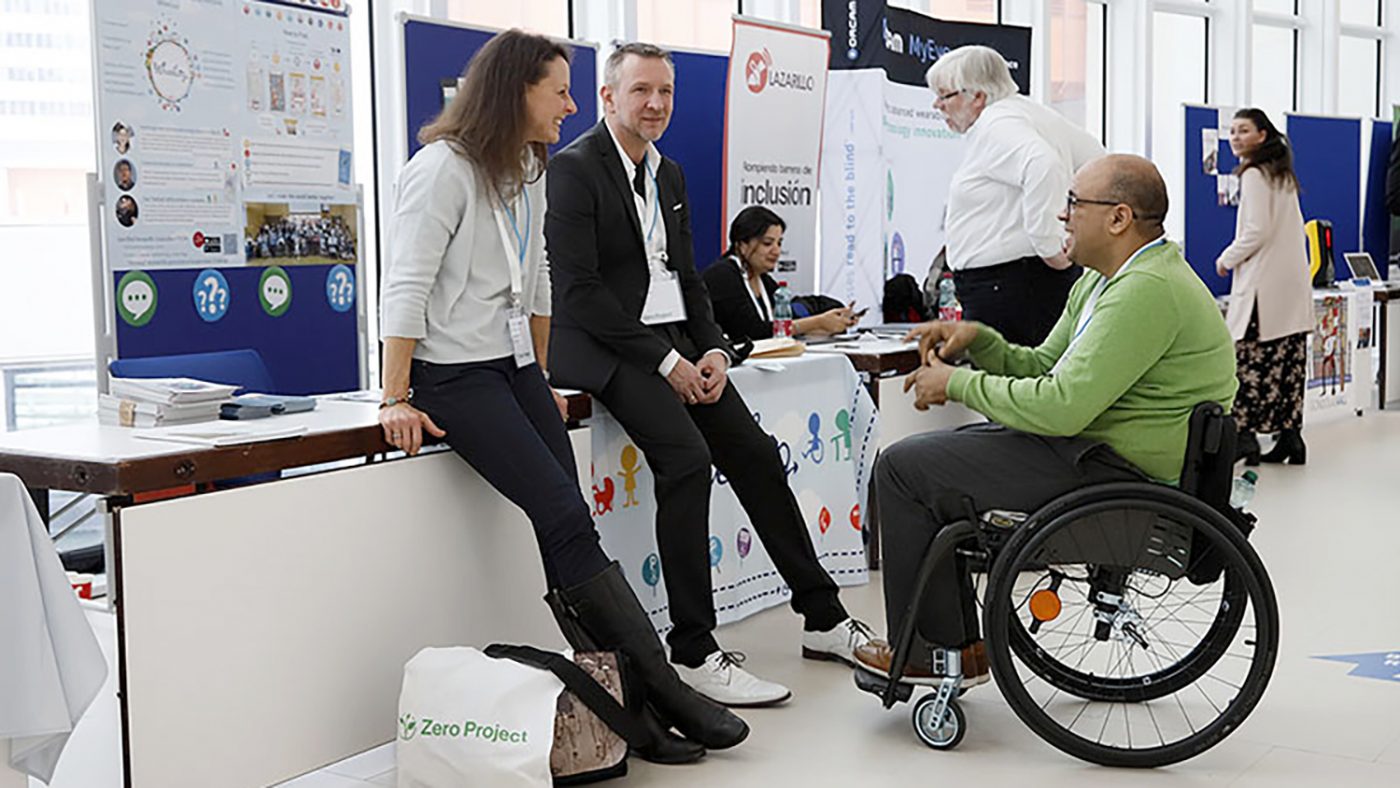
The annual Zero Project Conference brings together international organisations working on disability to celebrate innovation in accessibility for people with disabilities.
Its mission is “working for a world without barriers”, as defined by the United Nations’ Convention on the Rights of Persons with Disabilities, and it focuses on researching and communicating innovations. Through this mission, Zero Project aims to celebrate “the dignity of man”.
The 2018 conterence, hosted by the Essl Foundation, took place in the UN office in Vienna, and I was lucky enough to attend.
The conference opened with an impressive speech by TED speaker and social entrepreneur Caroline Casey. She explained that the Sustainable Development Goals (SDGs) are playing an important role in shaping our world, especially for people with disabilities, saying: “We must find and implement one single innovation for people with disabilities in our home country right now.”
The first keynote speech was by political scientist Daniela Bas, who spoke about how accessibility can help us achieve inclusive and sustainable development for all. She said: “The ‘dis’ in ‘disability’ can stay at home. Let us try to bring the abilities forward more and more.”
For the first day of the conference, I chose to attend sessions focusing on innovations for people with visual impairments. These included orientation systems such as tactile pavements in Italy, an audio-based navigation system for mobile devices called Wayfindr, and a menu-reading app called MenuSpeak, developed by an organisation called Mopius in Vienna, to help people choose food and beverages in restaurants.
Day one ended with more keynote speeches, most notably by Shelly London, president of Poses Family Foundation, whoch focuses on improving the lives of people with learning and attention issues. She spoke about children with neurodiverse conditions, telling us to “look for unexpected inspiration and see the world through your child’s eyes”.
About the Zero Project Conference
The annual conference took place in February 2018 at the United Nations office in Vienna, Austria. In total, 650 people travelled from 70 countries to attend.
Visit the website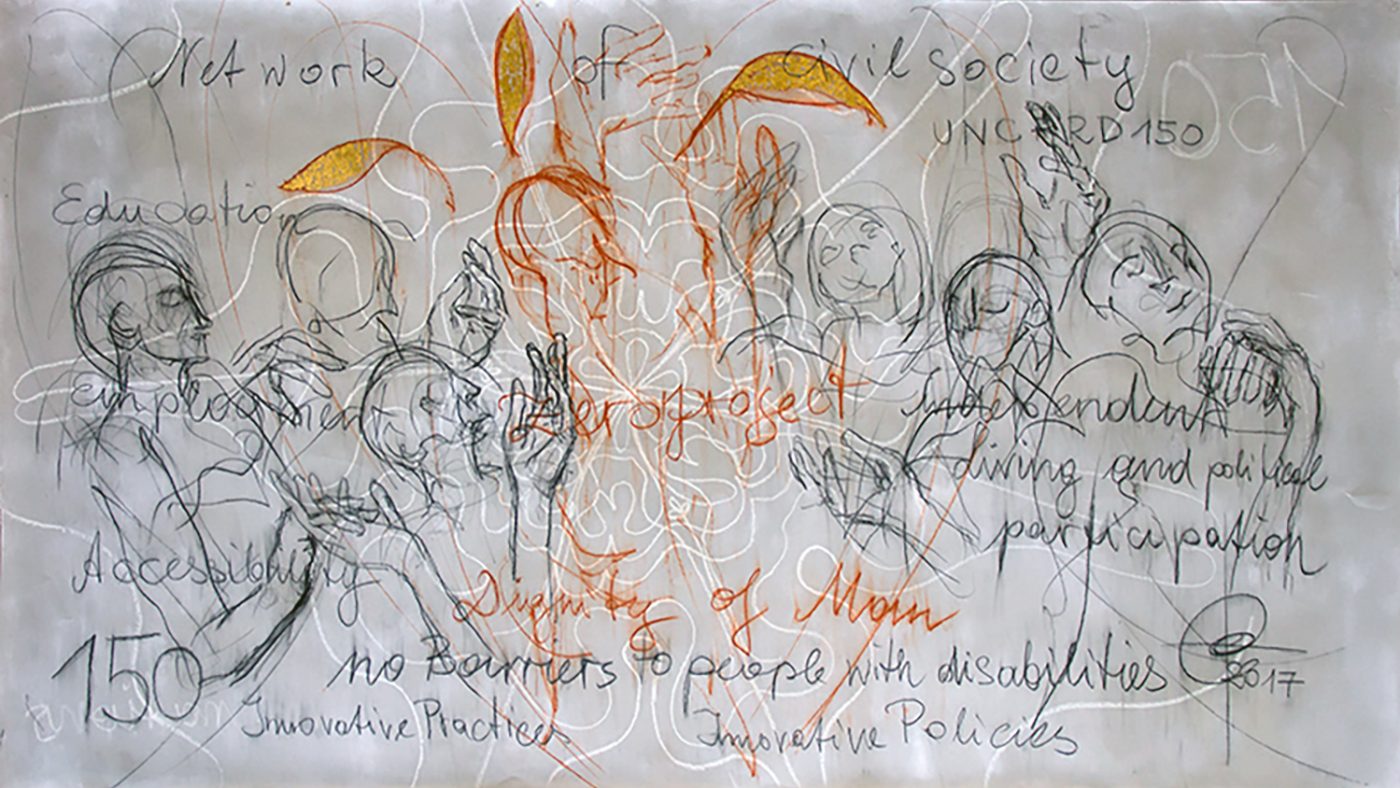
Day two: a different way of thinking
On the second day of the conference, disability expert Immaculada Placencia discussed the European Accessibility Act, encouraging the audience to “prepare the world for a different way of thinking about accessibility.” This is something we are very much doing at Sightsavers as we work on more of our publications and websites to make sure they are accessible for people with disabilities and other conditions.
My sessions for day two focused on sign language and IT solutions supporting people with hearing impairments. Most impressive was the work of Gallaudet University in Washington DC, which has developed a bilingual storybook app written in sign language. We heard the argument that sign language should be part of the curriculum in all schools, so people with hearing loss are not alienated, but can communicate with everyone in their language.
At the end of the sessions, we walked to the rotunda of the UN Building, where we listened to the Longfield Gospel Choir perform the Zero Project Hymn: the song speaks of changing the world to create a civil society for the benefit of everyone. Watch the video on the right to hear the song.
That evening, the awards ceremony took place: it was great to see so many of the products we had heard about during the seminars receiving awards.
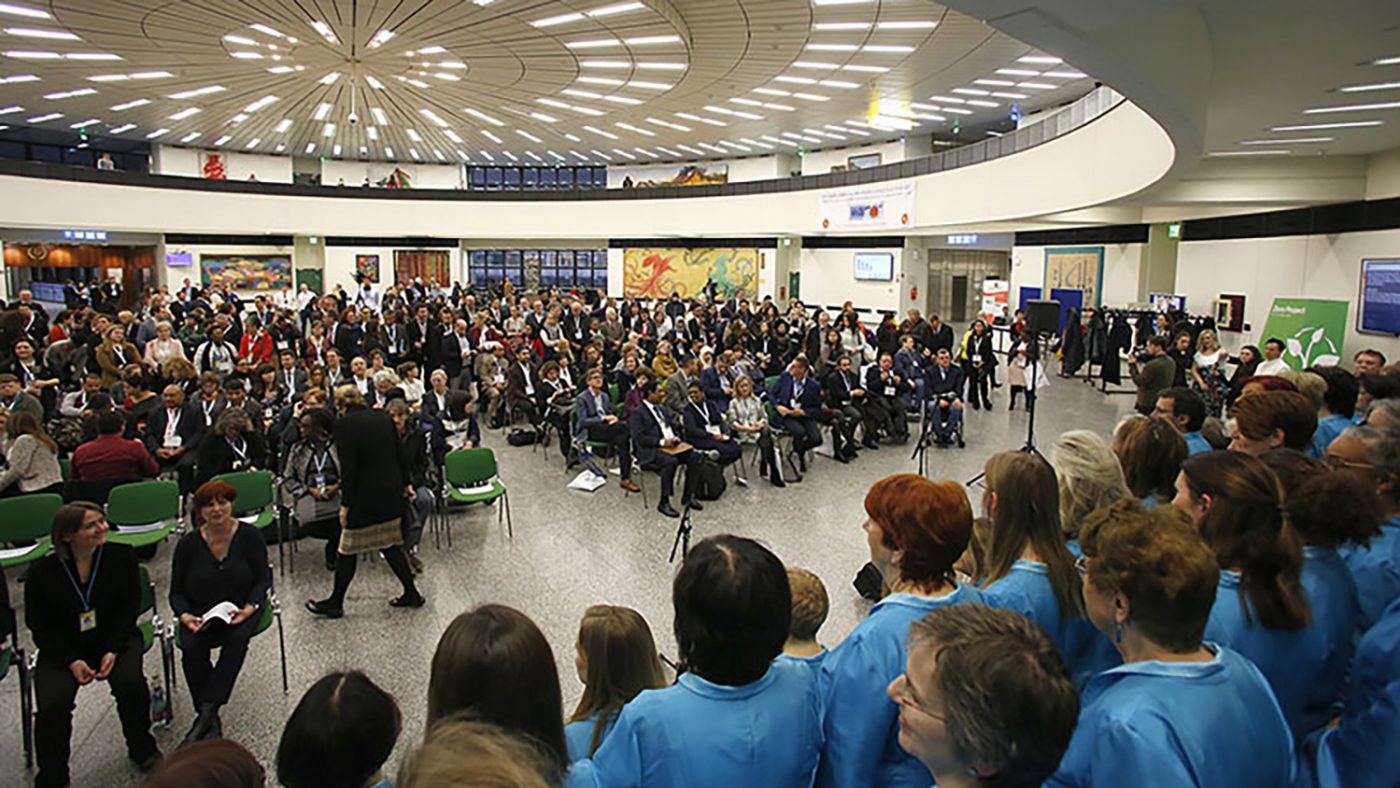
Day three: accessible news
On the third day I heard an inspiring keynote speech by Daniel Kish, an orientation and mobility specialist from World Access for the Blind, who is blind himself. Daniel talked about using his ears to see, because every surface reflects sound differently and enables those who cannot see to navigate their way around.
One of the parallel sessions I attended focused on accessible news and easy language. I learned about NewzHook, an app from India that provides easy access to news for people with disabilities, including hearing loss, visual impairments and intellectual disabilities. The NewzHook website provides articles that are accessible for screen readers, and includes articles in Indian sign language. It was a useful reminder about how important it is to use easy-to-read language.
In conclusion, the conference and Zero Project report was a great way to discover the many different products and technologies that are advancing to help people with disabilities to live their lives to the full – long may it continue.
Author
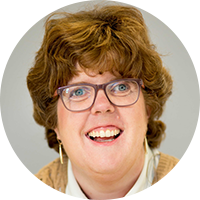 Kate Bennell is the organisational inclusion coordinator at Sightsavers UK. Severely sight impaired herself, she coordinates the Social Inclusion Working Group and champions accessibility.
Kate Bennell is the organisational inclusion coordinator at Sightsavers UK. Severely sight impaired herself, she coordinates the Social Inclusion Working Group and champions accessibility.
LinkedIn
On reflection: “Daniela Bas’s statement about focusing on ability really rang a bell with me. As a person with severe visual impairments, I try to focus on the things I can do and ignore the things I cannot do, especially in my work with the Social Inclusion Working Group. I love to make the most of the talents of the group and utilise these to everyone’s benefit.”
Read about Sightsavers’ commitment to inclusion
Social Inclusion Working GroupMore from the
Social Inclusion Working Group
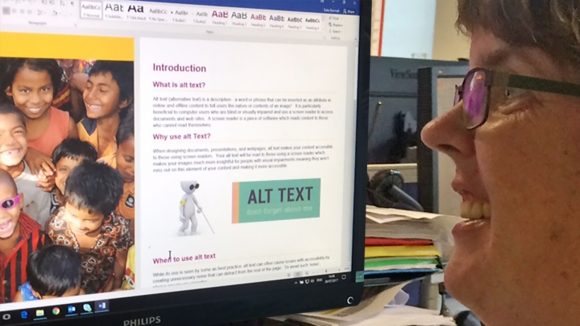
How to support people with hydrocephalus at work
Sightsavers’ Kate Bennell shares her experience of living with hydrocephalus and explains how employers can support colleagues with the condition.
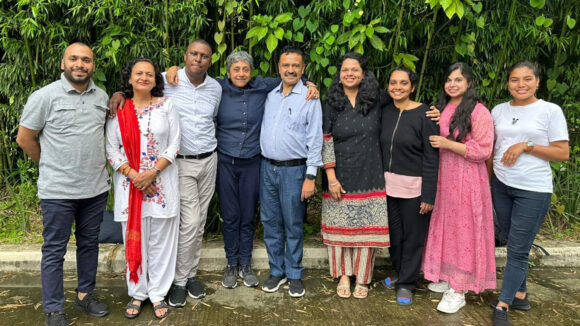
How people with psychosocial disabilities can claim their rights
Sightsavers’ Kate Bennell reflects on a recent talk led by Transforming Communities for Inclusion about psychosocial disabilities.
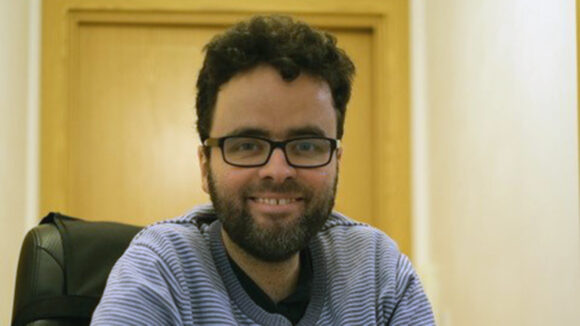
“My aim is to make the world a better place for disabled people”
Sightsavers’ Kate Bennell talks to Peter Fremlin, curator and author of the Disability Debrief, about the online newsletter which provides a disability lens on world news.
